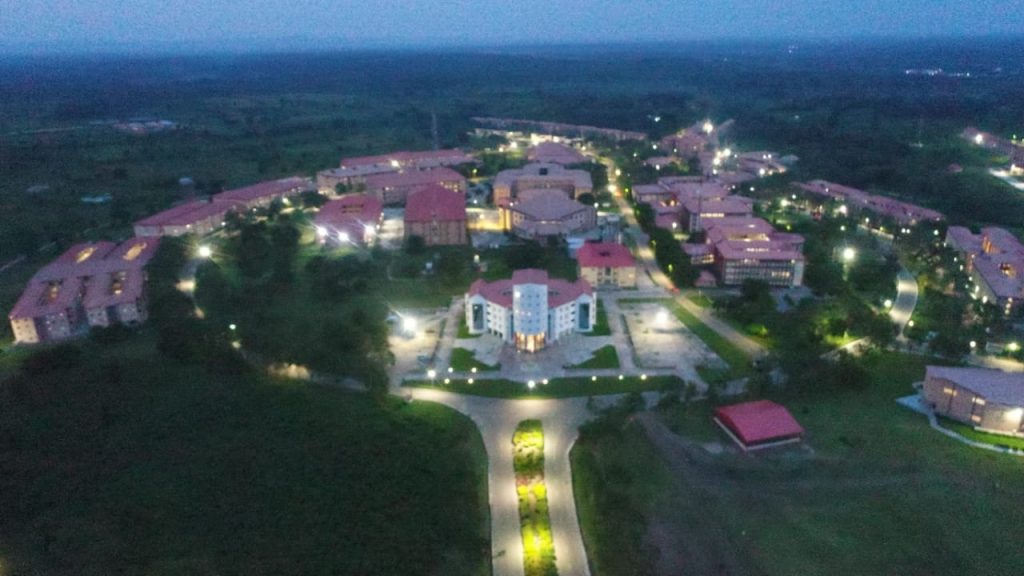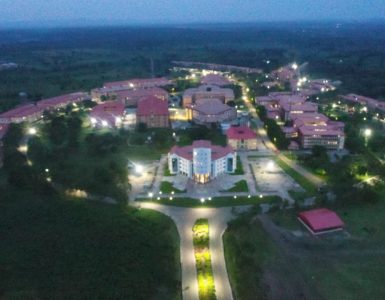In 2023, ABUAD is committed to achieving a remarkable goal of 100% renewable energy by the year 2025. This ambitious objective has prompted the university to significantly increase its efforts in the production of biofuels, specifically cassava and sugarcane, at the ABUAD Farm. These initiatives are not merely peripheral activities but are central components of the University Energy Utilities and Sustainability Plan (2020 – 2030). This comprehensive plan is meticulously reviewed and updated on an annual basis to ensure that all strategies implemented are both effective and relevant to the university’s sustainability goals.
In addition to scaling up biofuel production, ABUAD is actively enhancing its divestment strategy, which involves reducing investments in fossil fuels and rechanneling resources into sustainable alternatives. This strategy is crucial for aligning the university’s financial practices with its environmental objectives. Furthermore, ABUAD is strengthening its collaboration with the International Institute of Tropical Agriculture (IITA) and engaging in fruitful partnerships with esteemed organizations in Japan. These collaborations focus on advancing cassava production techniques, ultimately promoting a sustainable and eco-friendly future. Through these concerted efforts, ABUAD is not only positioning itself as a leader in renewable energy but also as a model for other institutions striving for sustainability.
https://venturesafrica.com/japan-iita-abuad-partner-to-improve-cassava-production
ABUAD-Energy-and-Utilities-Sustainability-Master-Plan-Reviewed-2023Energy Waste Management through Detailed Energy Audits
In 2023, the University has proactively established a comprehensive framework of energy audits and extensive research studies aimed at improving energy efficiency across its campus. These initiatives are not merely procedural; they serve as essential tools guiding the implementation of the well-structured Energy and Utility Sustainability Master Plan, which was meticulously reviewed and updated in 2023 to align with current sustainability goals.
As part of this ongoing commitment to sustainability, the Directorate of Works and Maintenance Services performs thorough quarterly energy audits and detailed energy profile assessments throughout the year 2023. Each audit involves a systematic examination of a variety of campus buildings, including classrooms, laboratories, and residential facilities. The director and his skilled team analyze energy usage across different time frames and conditions, relying on historical data to identify patterns and trends that emerge in energy consumption on a weekly basis.
To facilitate this analysis, the team creates comprehensive plots and charts of energy usage data, highlighting both normal and peak consumption periods. By closely examining these graphical representations, they can discern the specific times when energy demand is highest and, conversely, when it dips during off-peak hours.
One of the key objectives of this rigorous analysis is to determine the percentage of energy consumed during these off-peak periods. This information is vital, as it allows the team to calculate the level of energy waste incurred when buildings are still consuming power but not in use, such as late at night or on weekends. With these insights, the University can implement targeted strategies to reduce energy waste, such as optimizing heating and cooling systems, introducing smart building technologies, and encouraging energy-saving behaviors among faculty, staff, and students.
Ultimately, through these detailed energy audits and proactive management strategies, the University aims not only to foster a culture of energy awareness and responsibility but also to achieve significant reductions in energy consumption, contributing to its broader sustainability objectives and minimizing its environmental footprint.

Energy Audit and Reliability Analysis of Afe Babalola University Power Distribution System
https://www.igi-global.com/chapter/energy-audit-and-reliability-analysis-of-afe-babalola-university-power-distribution-system/256676
https://portal.abuad.edu.ng/Assignments/1620755175AKPAN_ASS.pdf

















Add comment